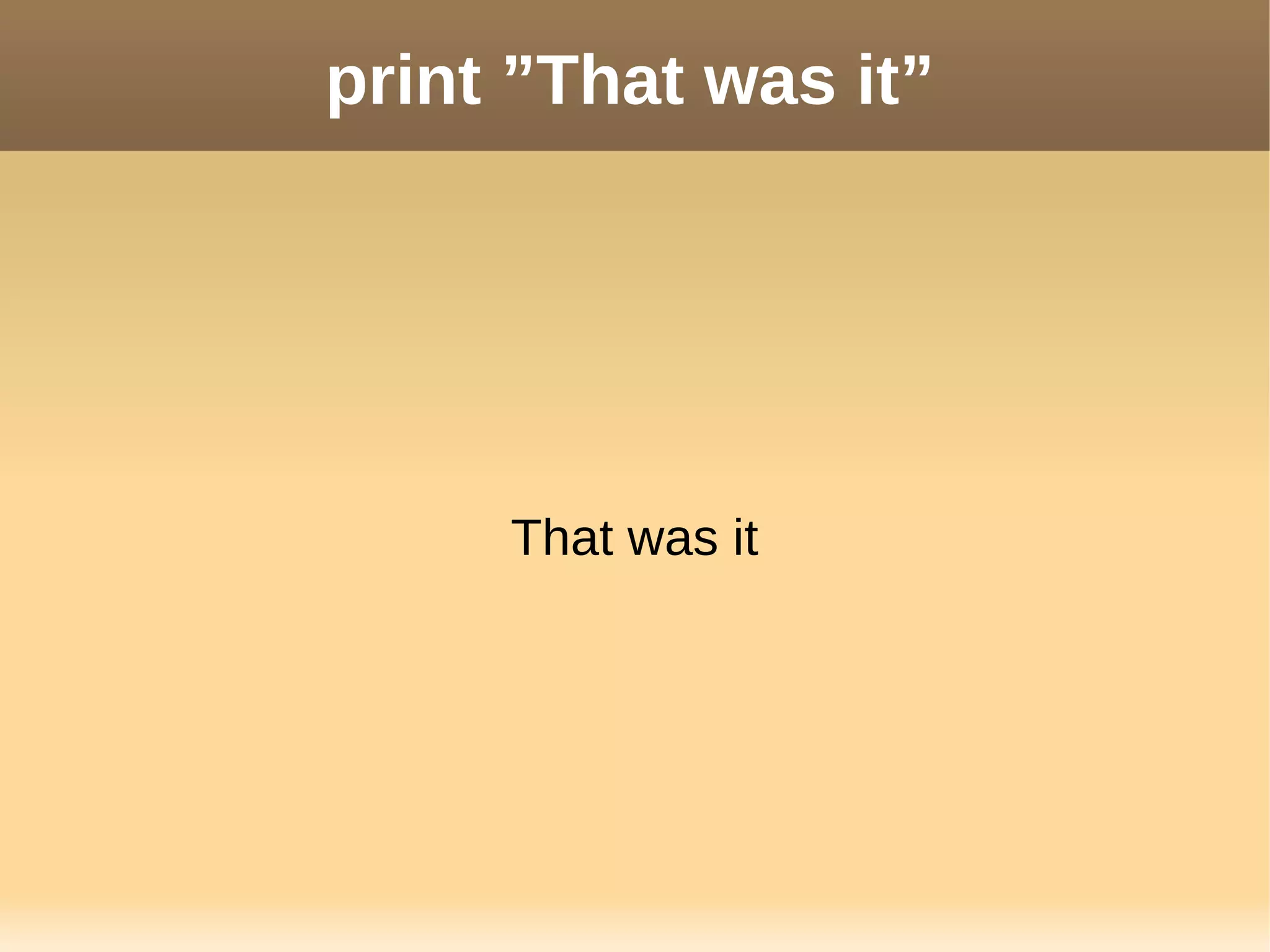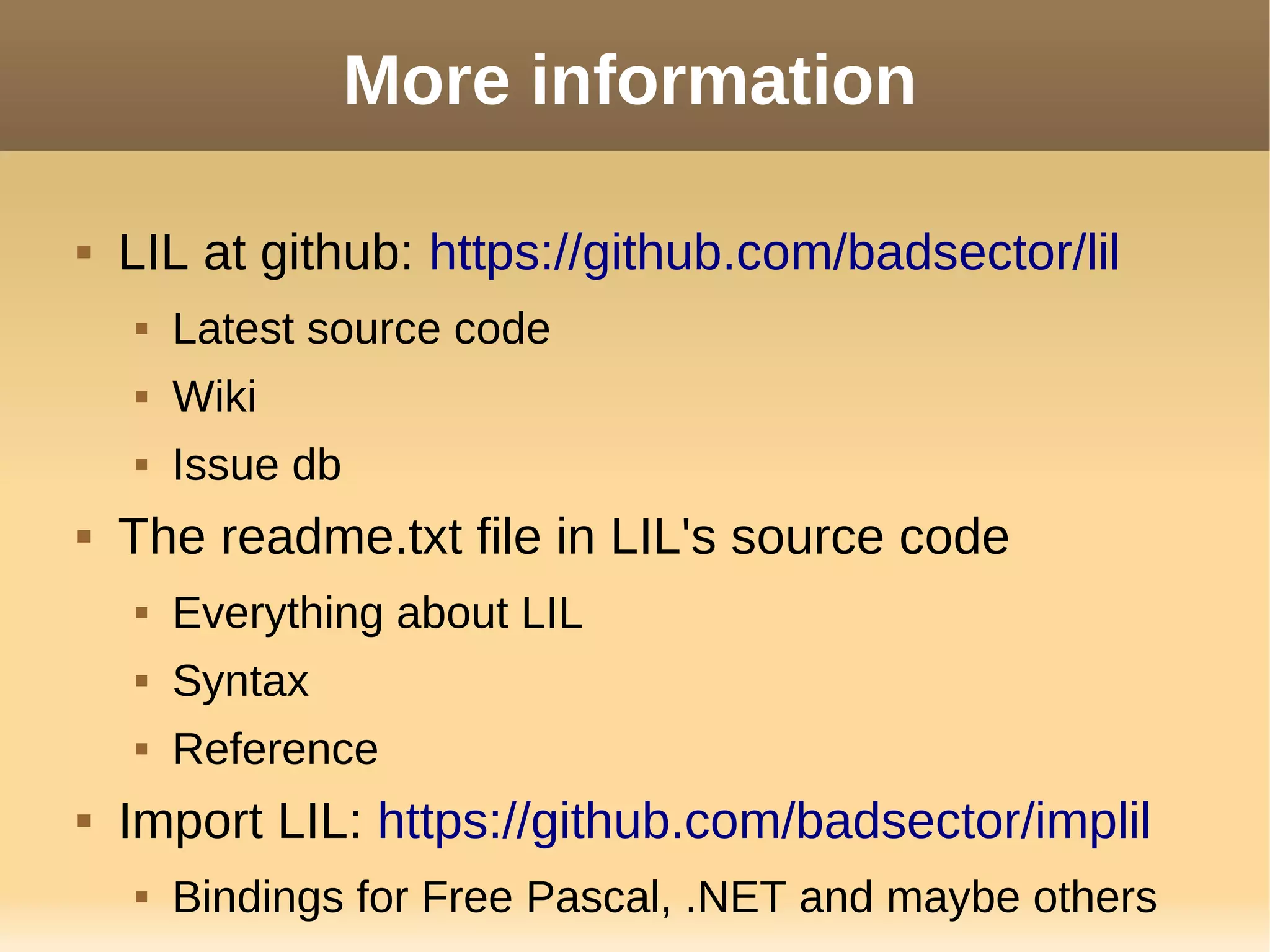Lil is a small, highly dynamic programming language designed as an extension language with minimal syntax and around 50 core functions. It allows for easy embedding within host programs and supports runtime modifications, including the creation and redefining of functions. The language is easy to integrate using a simple API and is suitable for various applications, including game logic and server responses.
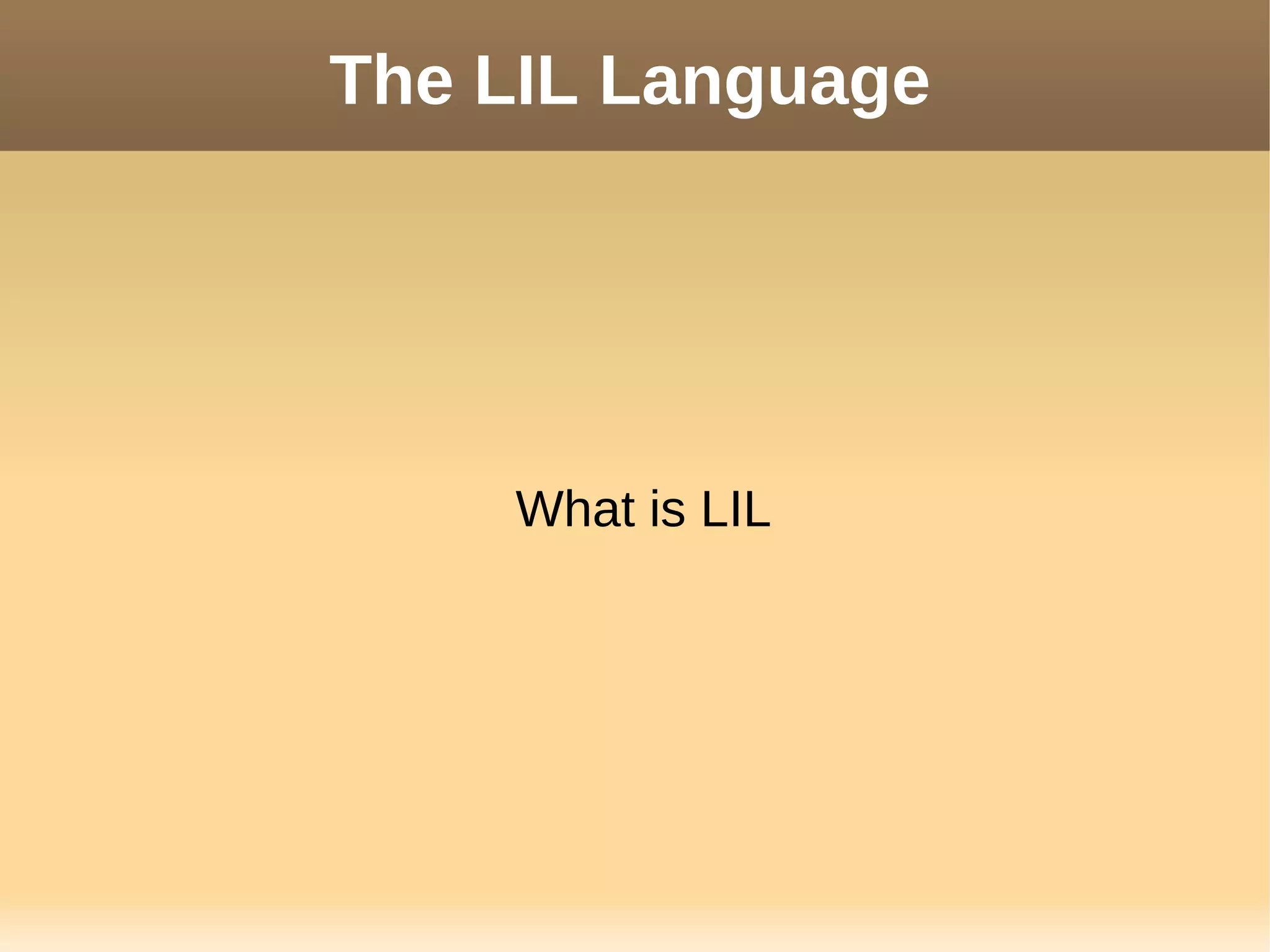
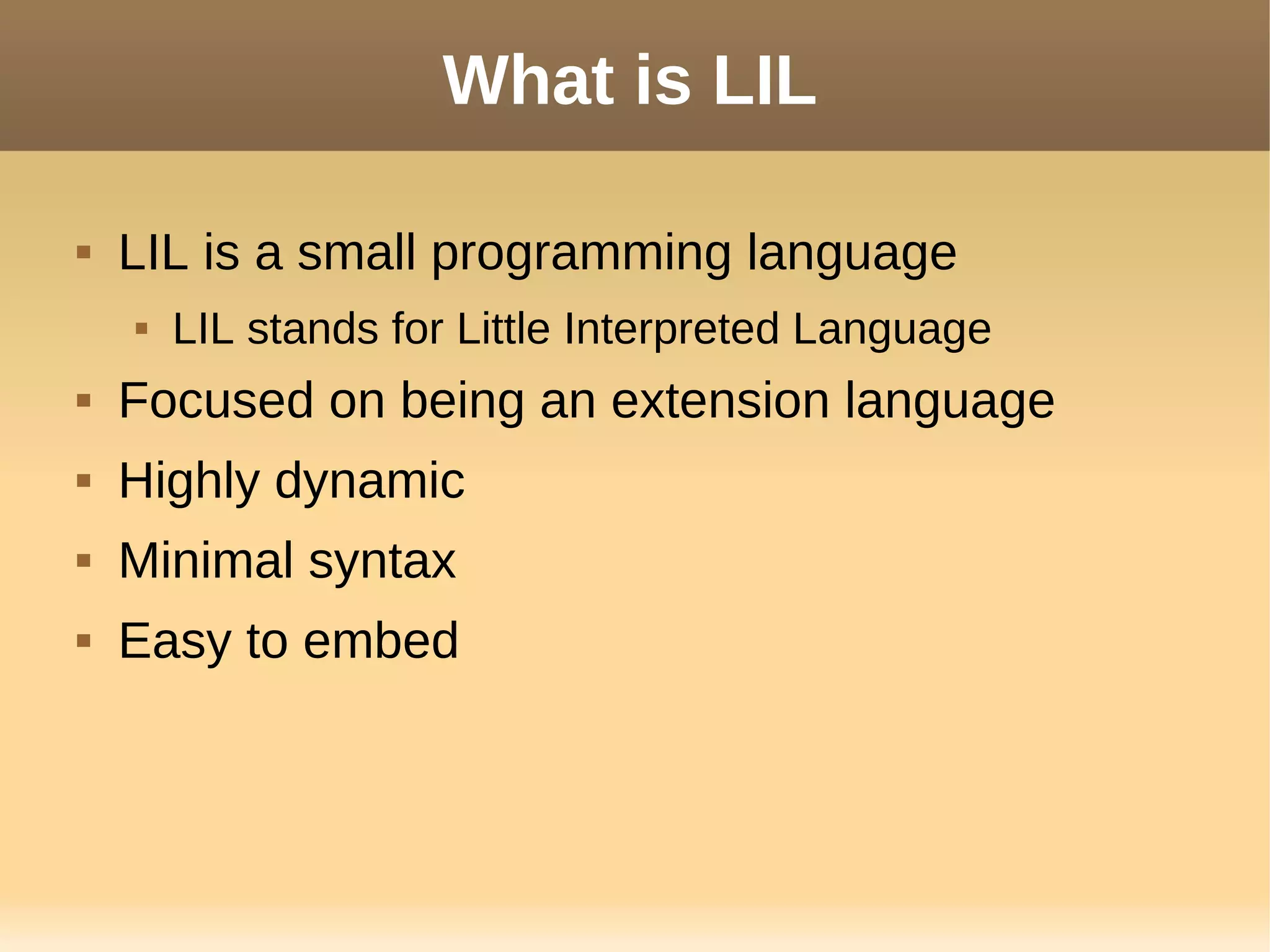
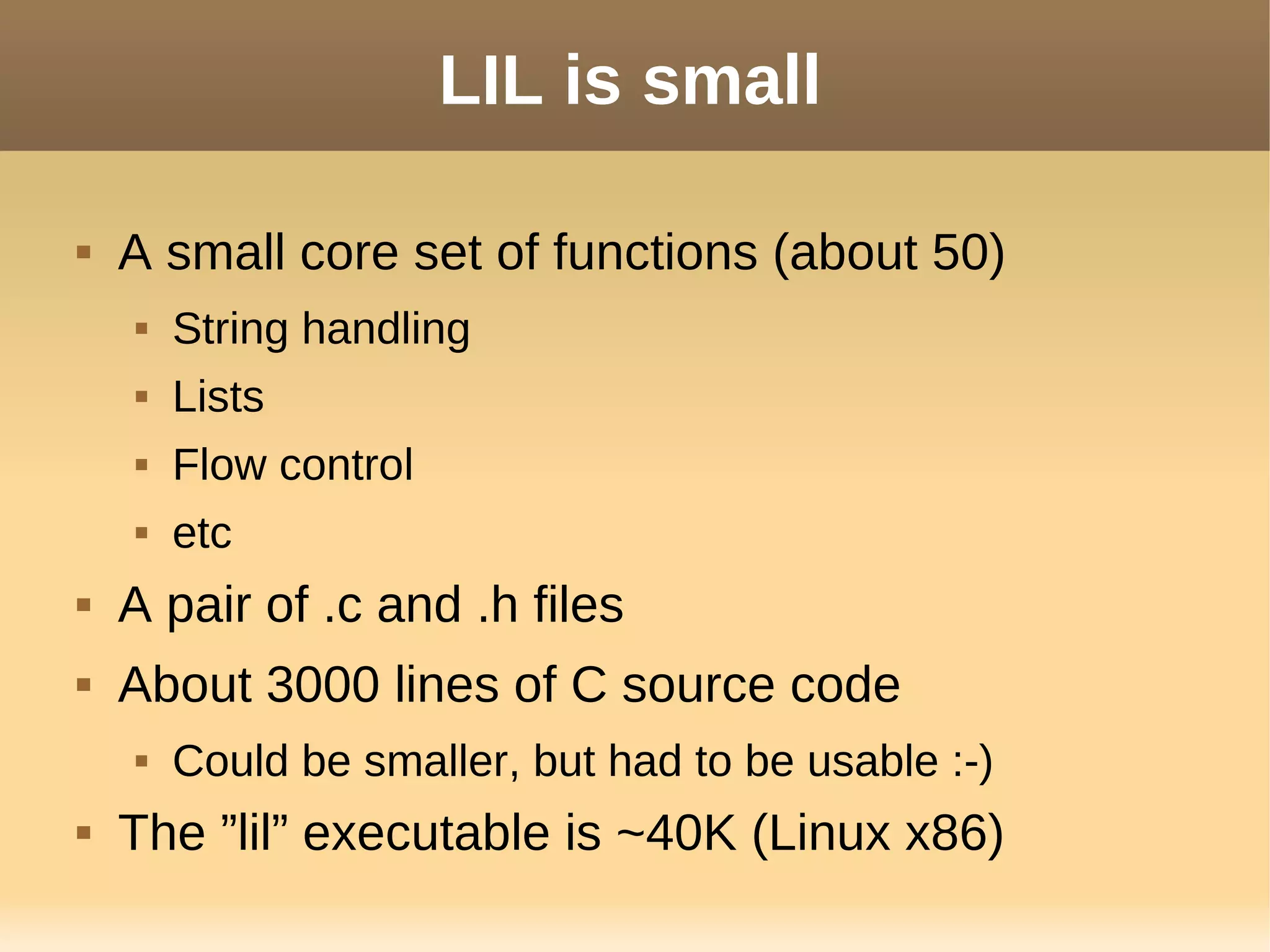
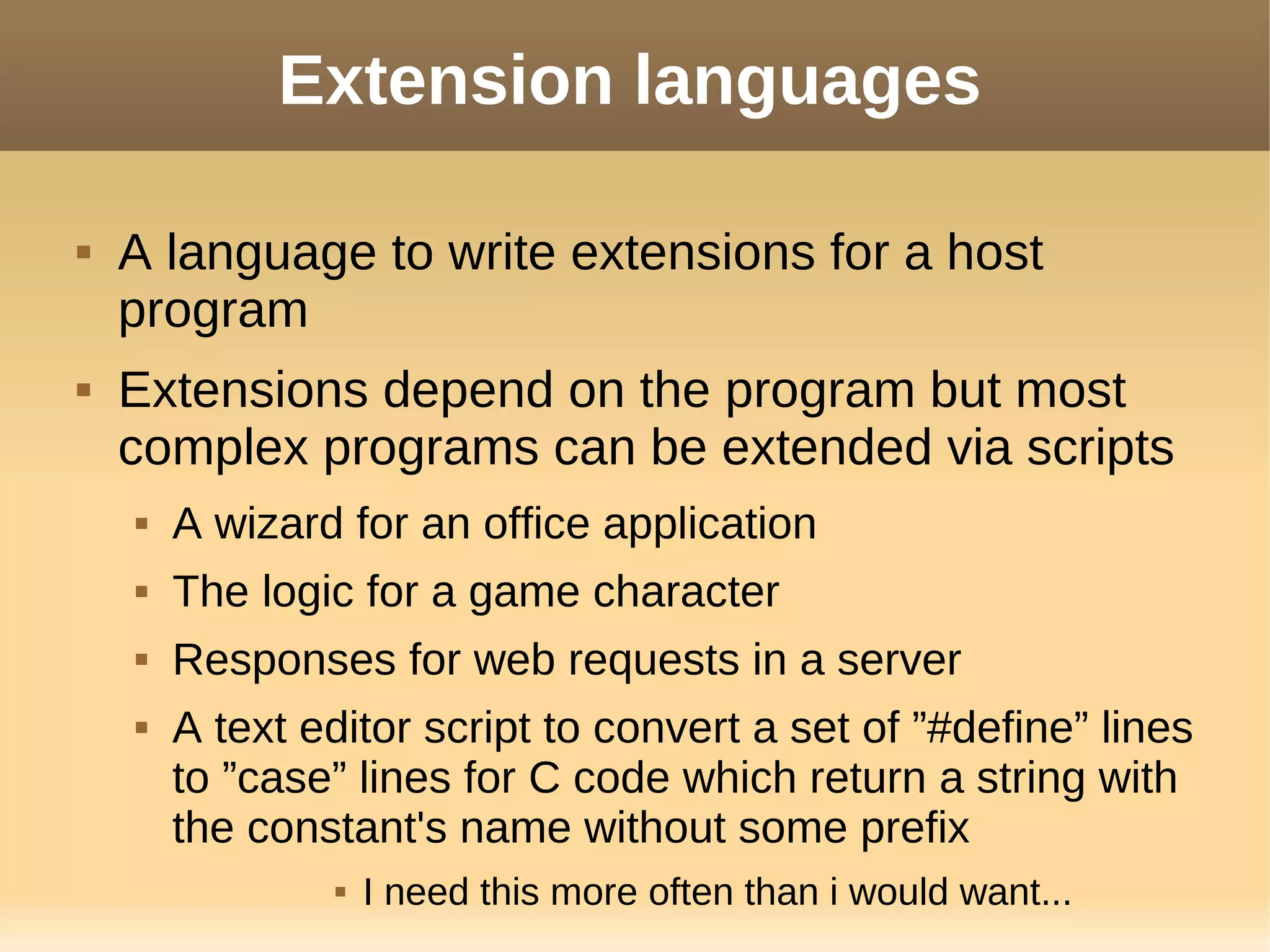
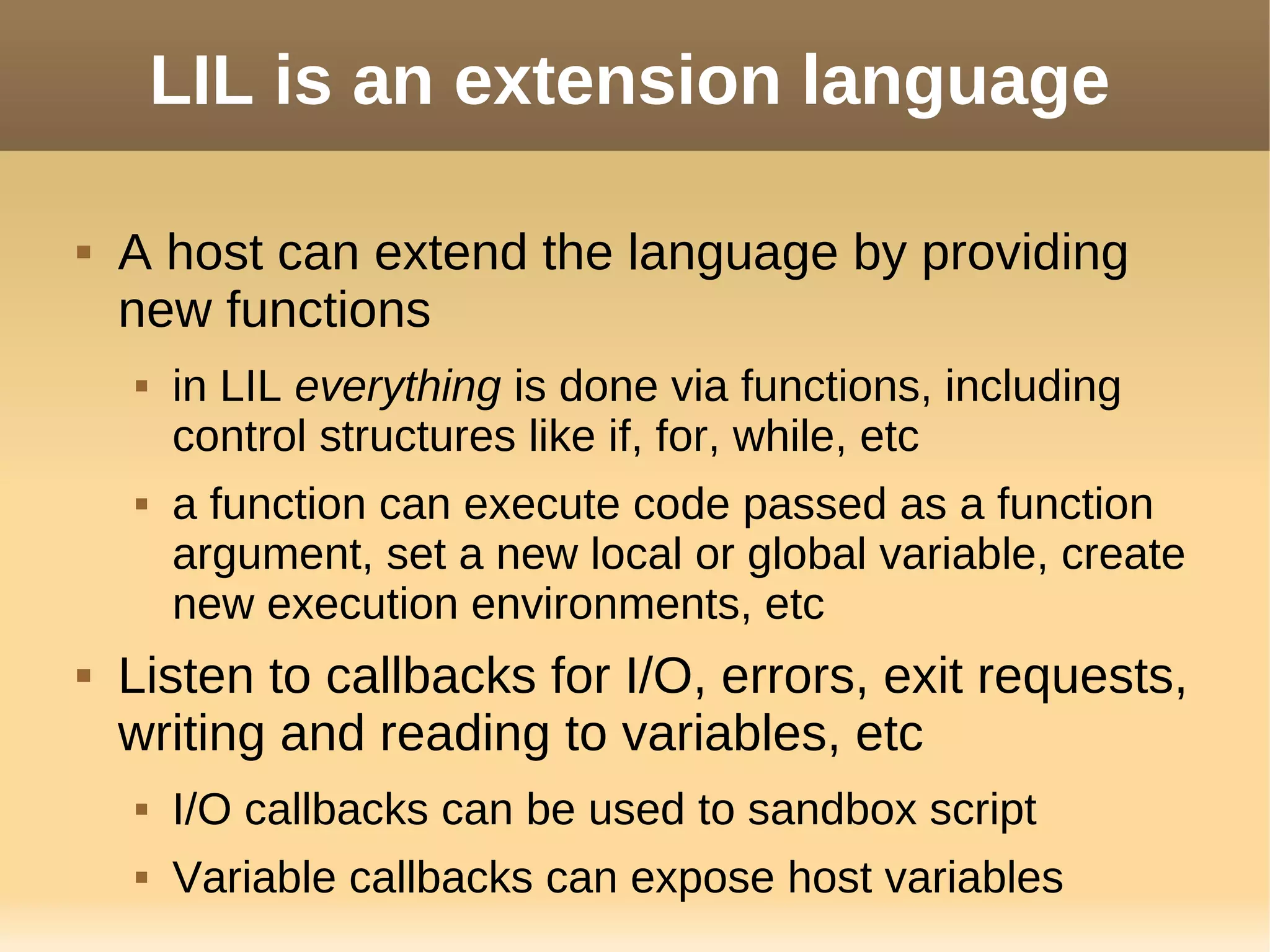
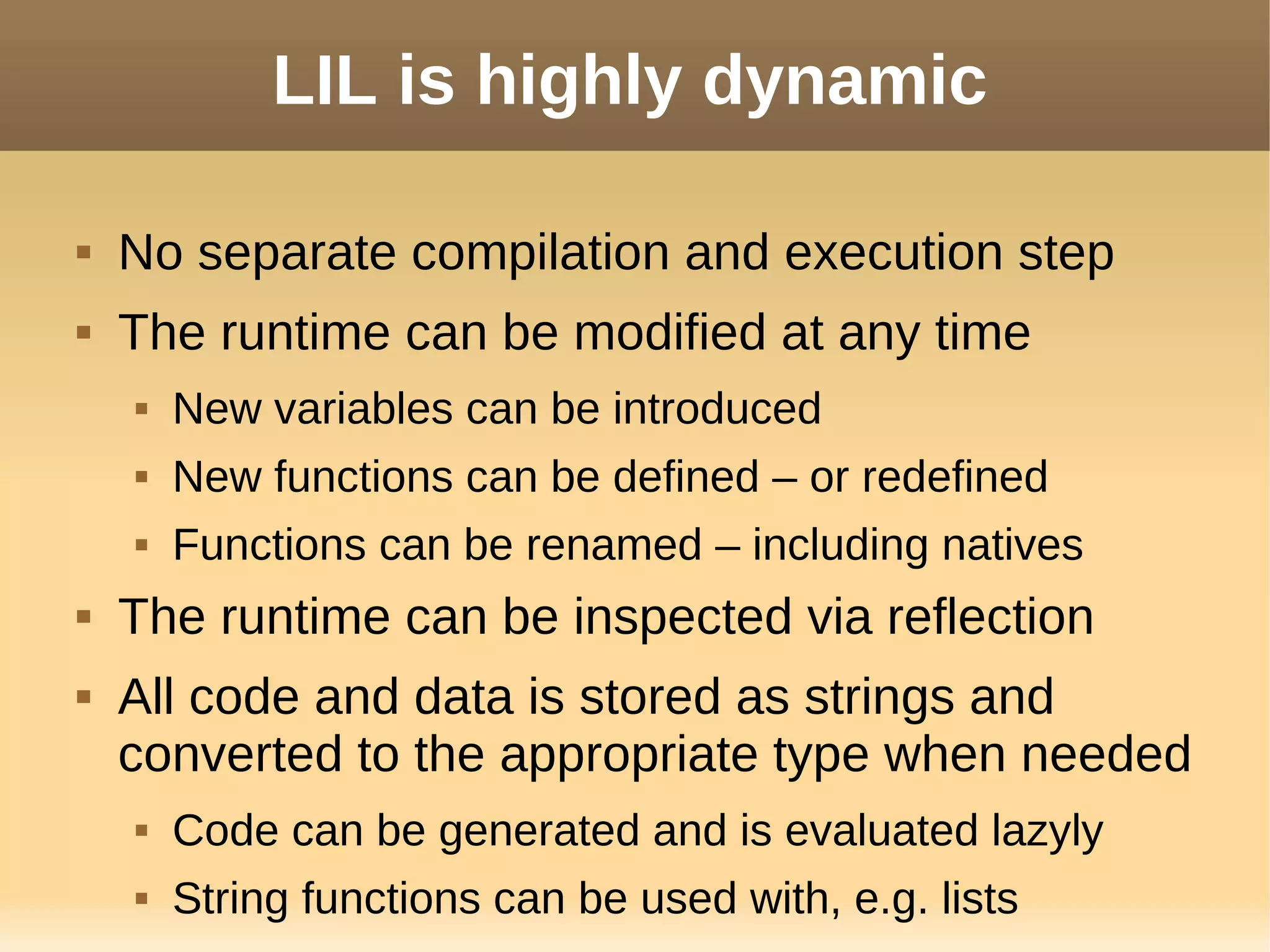
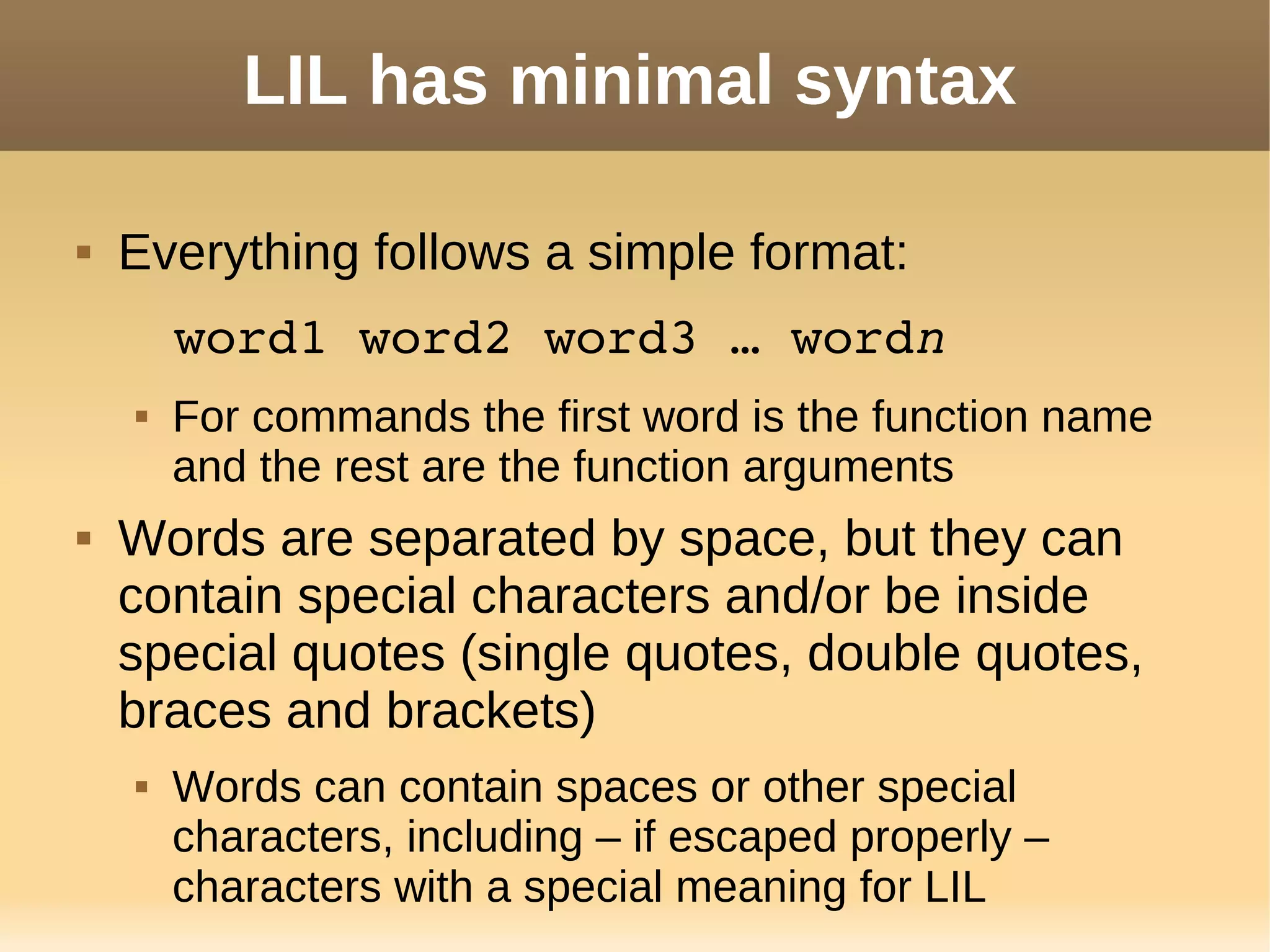
![LIL has minimal syntax (cont.)
Single and double quotes can be used to
include spaces and/or escaping characters
A command inside [ and ] is executed and its
result is used in place of the […]
Anything inside { and } is used as-is
however LIL will count the {s and }s so that they can
be nested
$ followed by a word evalutes to a variable read
this can be changed at runtime to do other things
And that is it. See LIL's readme.txt for details](https://image.slidesharecdn.com/lil-presentation-130706062428-phpapp02/75/LIL-Presentation-8-2048.jpg)
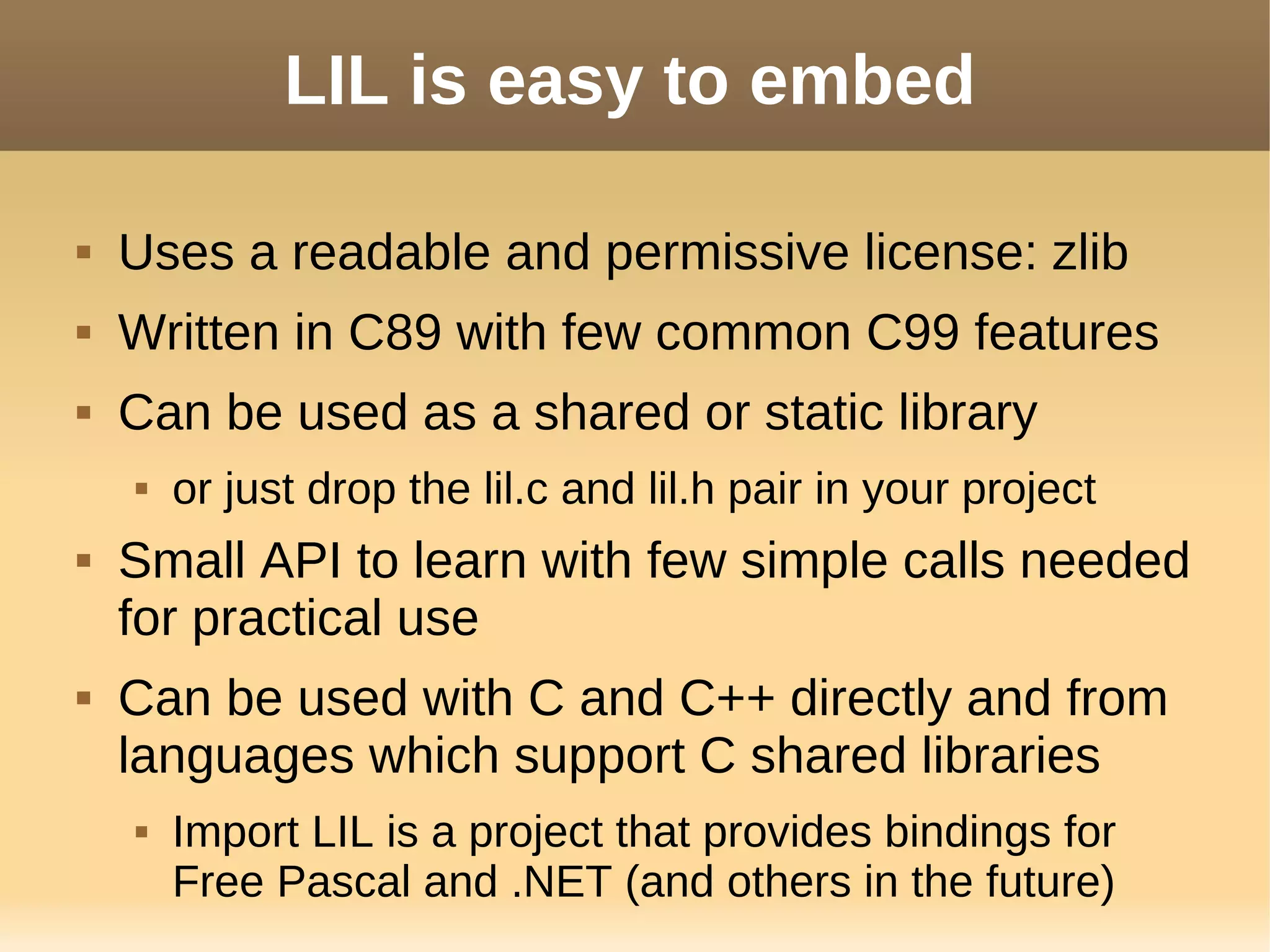
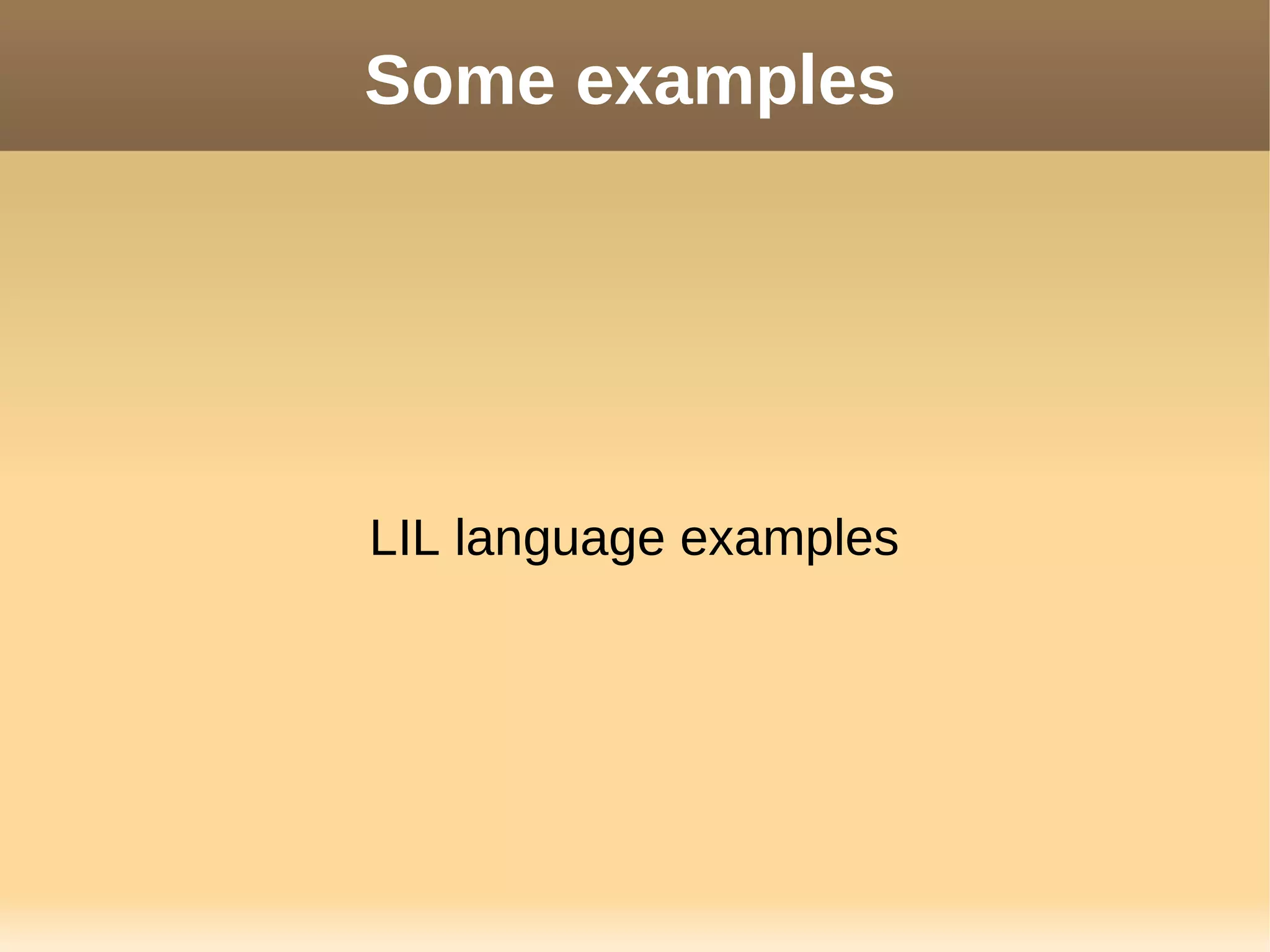
![LIL examples
Mandatory hello world
print Hello, world
Notice how quotes are not needed
Error-try-catch
try { if stuff { error ”Bad stuff” } } { print
Got an error: [reflect error] }
Factorial of 10
print [[func {x} { if [expr $x == 1] { return 1
} { return [expr [[reflect name] [expr $x 1]]
* $x] }}] 10]](https://image.slidesharecdn.com/lil-presentation-130706062428-phpapp02/75/LIL-Presentation-11-2048.jpg)
![LIL examples (cont.)
# print all known functions with name lengths
# less than five characters
set knownfuncs [reflect funcs]
set predicate {[length $x] < 5}
set smallfuncs [filter $knownfuncs $predicate]
print "Functions with small names:"
foreach $smallfuncs {print " $i"}](https://image.slidesharecdn.com/lil-presentation-130706062428-phpapp02/75/LIL-Presentation-12-2048.jpg)
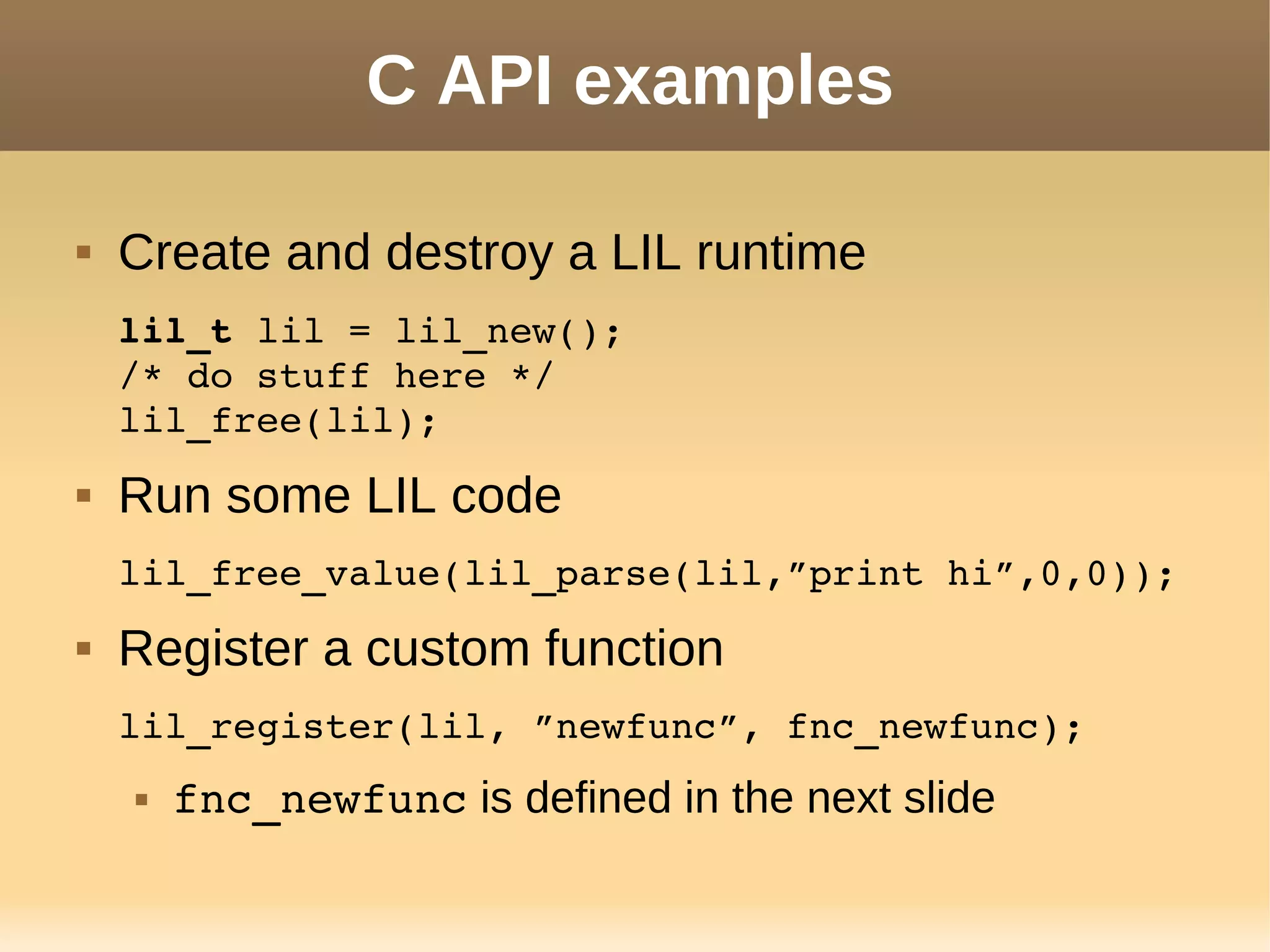
![C API examples (cont.)
/* myfunc native function */
LILCALLBACK lil_value_t fnc_myfunc(
lil_t lil, /* lil runtime */
size_t argc, /* number of arguments */
lil_value_t* argv) /* arguments array */
{
size_t i;
printf(”I've got %i arguments:”, (int)argc);
for (i=0; i<argc; i++)
printf(” '%s'n”,
lil_to_string(argv[i]));
return lil_alloc_string(”myfunc result!”);
}](https://image.slidesharecdn.com/lil-presentation-130706062428-phpapp02/75/LIL-Presentation-14-2048.jpg)
